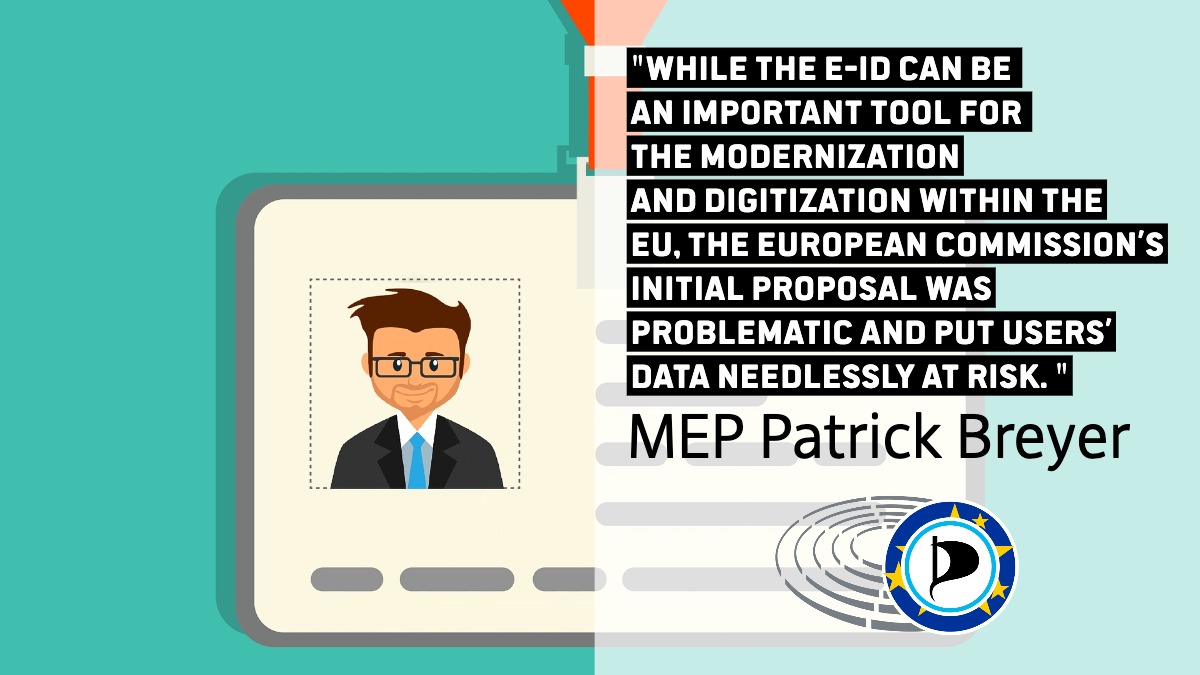
Brussels, 15/03/2023 – On Thursday, the European Parliament is expected to formally adopt its final position on the European Electronic Identity (e-ID), before going into trilogue negotiations with the Council of the European Union. In addition to privacy successes in the leading industry Committee, Pirate Party MEPs were able to implement additional data protection safeguards into the final text via the Civil Liberties Committee (LIBE). Most importantly the content of a user’s identity wallet, which may include sensitive medical data, payment data or criminal records, would be stored on the user’s device only unless they explicitly choose that an external cloud copy should be kept. The text also protects the right to use digital services anonymously by providing that digital services should be provided without electronic identification or authentication where reasonably possible.
Via the lead industry Committee Pirate Party MEPs had already made sure that Member States will not have to establish a unique personal identification number for every citizen. The source code used for providing European Digital Identity Wallets would be open source, that non-users of the voluntary eID scheme would not suffer disadvantages and would be able to use alternative means of identification or authentication. Pirates have not been able to prevent the mandatory acceptance of government browser certificates but there will be exceptions.
Pirate Party MEP Patrick Breyer, who negotiated the bill in the Committee on Civil Liberties (LIBE), comments:
“We successfully pushed for the addition of a provision ensuring that services are normally provided without electronic identification or authentication wherever reasonably possible. I’m glad that we thus countered the risk that the anonymity online that protects us from profiling and online crime is gradually eroded. We further managed to ensure that the content of a user’s identity wallet, which may include sensitive medical data, payment data or criminal records, would be stored decentrally on the user’s device only unless they explicitly choose that an external cloud copy should be kept. After all, nobody keeps a duplicate of a person’s physical wallet, either. Decentralized data storage protects our data from hacks and identity theft.
While the e-ID can be an important tool for the modernization and digitization within the EU, the European Commission’s initial proposal was problematic and put users’ data needlessly at risk. That’s why in the trilogue negotiations, my Pirate Party colleague Mikuláš Peksa, who is in the negotiating team as Shadow rapporteur will fortunately continue the fight to protect our personal data and right to anonymity online.”
The e-ID will allow EU citizens to prove their identity via mobile app, access public and private services online, pay online and facilitate everyday situations. Driving licences or medical prescriptions could also be stored in the “Wallet App”.









